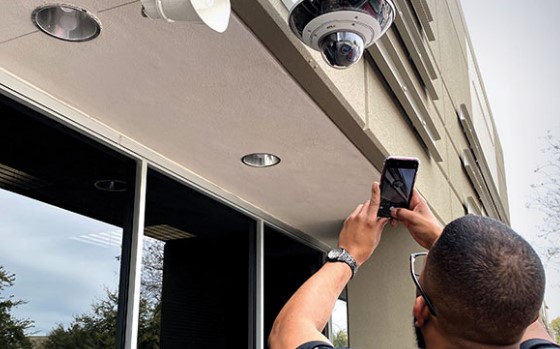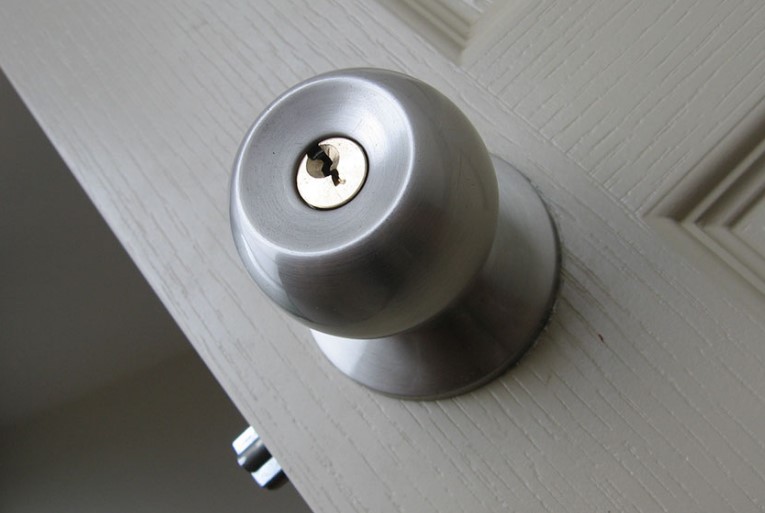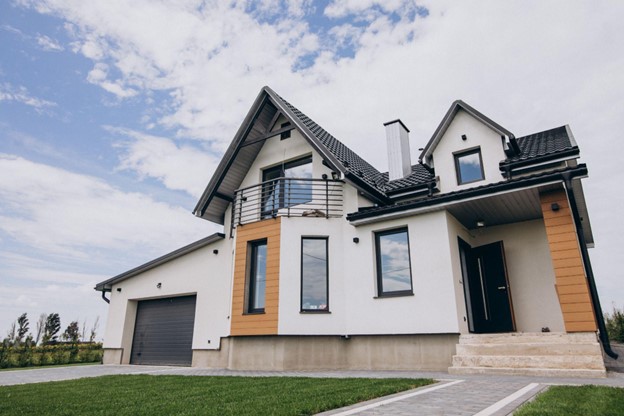The digital age has dawned upon us, expanding the frontier of home security far beyond locks and alarms. As cyber threats loom large, it is essential to reinforce your home’s virtual fortress, ensuring the safety of not only your physical assets but also your digital troves. Here, we will delve into the realm of “What is not a Physical Security Measure for Your Home”.
Cybersecurity Measures for Home: A New Paradigm

Modern homes have evolved into digital hubs, replete with interconnected smart devices, computer systems, and private networks. The advent of such technology has necessitated the implementation of cybersecurity measures, providing an impenetrable shield against potential online threats. These digital safeguards are as important as physical security and require your undivided attention to keep your personal data, financial information, and sensitive files secure.
Digital Security for Your House: The First Line of Defense

One of the fundamental aspects of digital security for your house is robust password practices. Simple passwords or repeated use of the same password across different platforms can leave your digital fortifications susceptible to breaches. Opt for a complex, unique password for each account, leveraging password management tools if necessary, to ensure the safety of your online data.
Virtual Security for Residential Properties: Beyond the Physical Realm

Another vital component of virtual security for residential properties involves software security measures. Regular updates to your devices and software protect against newly identified vulnerabilities and threats. Anti-malware solutions, network firewalls, and data encryption measures further bolster your home’s digital defenses, preventing unauthorized access and safeguarding your digital realm.
Online Privacy for Your Home: The Invisible Shield
In the interconnected world, online privacy has emerged as an indispensable aspect of home security. Restricting the amount of personal information you share online, adjusting privacy settings across social platforms, and regularly monitoring online accounts for unusual activity are simple steps that can drastically enhance your home’s online privacy.
Network Security for Houses: A Guard at Every Port
Secure network practices, such as setting up a virtual private network (VPN), can significantly bolster network security for houses. A VPN provides a secure, encrypted pathway for your online data, shielding it from potential threats and prying eyes on the internet. Furthermore, enabling firewalls and installing reputable antivirus software protects your home network from unauthorized access and malware attacks.
Encryption Measures for Residential Premises: The Digital Deadbolt

Data encryption is the modern-day equivalent of a deadbolt for your digital door. Encryption is a method of converting your data into a code to prevent unauthorized access. Much like how a physical key is required to unlock a deadbolt, a digital key is necessary to decrypt and access encrypted data.
Your data is most vulnerable when in transit, like when you’re sending an email or making a transaction online. Utilizing encryption software can ensure that even if your data is intercepted, it remains undecipherable and secure.
Software Security for Homes: Fortifying the Digital Walls

Software security measures are a critical part of safeguarding your home from cyber threats. Regularly updating your software, including your operating system and applications, is one of the simplest yet most effective ways to reinforce your digital fortifications. Updates often contain security patches that address vulnerabilities, making your software more secure against potential breaches.
In addition, using a reputable antivirus program can offer real-time protection against threats, helping to detect and eliminate any malicious software that could harm your devices or compromise your data.
Anti-malware Solutions for Houses: The Digital Exterminator
Malware, short for malicious software, refers to various forms of harmful software, including viruses, ransomware, spyware, and other malicious programs. Anti-malware solutions act like digital exterminators, seeking out and neutralizing these threats before they can do any damage.
While antivirus software is designed to protect against viruses specifically, anti-malware covers a broader range of threats, making it a crucial component of your home’s cybersecurity measures.
Password Security for Houses: The Digital Lock and Key
Passwords are your first line of defense in the digital world. Ensuring you use strong, unique passwords for each of your accounts is paramount to keeping your digital house in order. Avoid common words or phrases and consider using a password manager to keep track of your passwords securely.
Also, take advantage of multi-factor authentication (MFA) wherever available. MFA adds an extra layer of security by requiring additional proof of identity beyond just your password.
Online Threats to Residential Properties: Beware of the Virtual Intruders
Cyber threats have evolved over the years, becoming more sophisticated and harder to detect. Some of the most common threats to residential properties include phishing scams, ransomware attacks, identity theft, and unauthorized access to your home network.
Awareness and education are the most powerful tools in your arsenal against these virtual intruders. Familiarize yourself with the common signs of these threats and stay updated on the latest cybersecurity trends and practices.
Frequently Asked Questions About What is not a Physical Security Measure for Your Home
1. What are the best cybersecurity measures for protecting my home?
A combination of strong password practices, regular software updates, installation of anti-malware solutions, and secure network practices can provide a robust cybersecurity framework for your home.
2. How can I ensure digital security for my house?
To ensure digital security for your house, use unique, complex passwords for all online accounts, install updates as soon as they are available, and install reputable antivirus software.
3. Are there any effective network security solutions for homes?
Yes, setting up a Virtual Private Network (VPN), enabling firewalls, and utilizing a secure Wi-Fi network are effective network security solutions for homes.
4. What measures should I take to prevent identity theft in my home?
To prevent identity theft, always use strong, unique passwords for all your online accounts and enable multi-factor authentication whenever possible. Regularly monitor your financial and online accounts for any unusual activity, and use secure networks when making online transactions.
5. How can I protect my smart home devices from cyber threats?
To protect your smart home devices, change any default usernames or passwords, regularly update device software, and secure your home network by using strong encryption settings on your Wi-Fi network.
6. Are there any network firewalls designed specifically for residential properties?
Yes, several network firewalls are designed specifically for residential properties. These firewalls act as a security gatekeeper between your home network and the internet, monitoring and controlling incoming and outgoing network traffic based on predetermined security rules.
Also Read: Why do Horses Need Shoes But Not Cows? [Top Reasons]
Conclusion
In conclusion, implementing robust non-physical security measures is an essential part of modern home security. From encryption measures and software security to anti-malware solutions and password security, these practices collectively form a resilient digital fortress around your home. Remember, your home’s security does not end at its physical boundaries, and extending it to your digital domain is equally important in today’s interconnected world. Hope so this guide about “What is not a Physical Security Measure for Your Home” prove much beneficial for you. Stay vigilant, stay informed, and stay secure.

A captivating wordsmith and dynamic blogger. With her pen as her wand, she weaves enchanting tales and thought-provoking insights that leave readers spellbound. Embrace the magic of her storytelling prowess and embark on an unforgettable literary journey with this talented writer.





